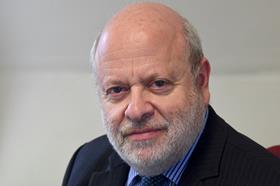It is an old principle that lawyers should not be identified with their clients’ causes. But it is being battered in a new environment of accountability, social justice and amplified passions on social media. Despite being old, often emphasised during criminal cases in the past, it is not often written down. However, it does appear in the United Nations Basic Principles on the Role of Lawyers (paragraph 18): ‘Lawyers shall not be identified with their clients or their clients’ causes as a result of discharging their functions.’

And it also appears in the International Bar Association’s Standards for the Independence of the Legal Profession (paragraph 7): ‘The lawyer is not to be identified by the authorities or the public with the client or the client’s cause, however popular or unpopular it may be.’
It is often cited in conjunction with the rule that everyone is entitled to legal representation – which is why lawyers need to take on unpopular causes. But that is a different rule, and differently based. For instance, Article 6 of the European Convention on Human Rights does grant such a right to representation in criminal cases: ‘Everyone charged with a criminal offence has the following minimum rights: … (c) to defend himself in person or through legal assistance of his own choosing.’ But there is no similar and absolute right in civil cases under the convention – the European Court of Human Rights has judged the right in civil cases to be dependent on circumstances.
Two recent incidents have brought the identification rule to the public’s attention. The first, which took place in the UK, concerned Dinah Rose QC, president of Magdalen College, Oxford, who agreed to act for the Cayman Islands in an appeal to the Privy Council, in which the government of the Cayman Islands is set to argue that same-sex marriage should remain illegal. There was a public fuss, particularly because of her Oxford college presidency. But she rode out the storm, justifying her legal role in a long and detailed statement, which cited the identification rule.
Given that her critics wondered why she needed to take on the case in the first place, she mentioned other rules as well, including the bar’s cab rank rule and the rule prohibiting the late return of a brief, since the case was just weeks away from being heard. She also argued that the case had nothing to do with the pros and cons of gay marriage, but rather the proper interpretation of the Cayman constitution.
The second incident concerned one of former president Trump’s lawyers in his recent impeachment trial before the Senate. Protesters attacked his house: ‘My home was attacked last night – windows broken, spray paint, really bad words spray painted everywhere.’ We know that one of the words sprayed on his drive was ‘Traitor’, and that protesters gathered outside his law firm and called him a ‘fascist’. This was not as a result of a criminal trial, but for a much rarer thing, an impeachment. But of course the rule about non-identification with the client’s cause should apply just as much to such a case.
We have become used to similar identifications. Before the pandemic struck, Lawyers for Extinction Rebellion singled out law firms which acted for carbon emitters and demonstrated outside their offices. In the US, an organisation called Law Students for Climate Accountability has drawn up a Law Firm Climate Change Scorecard, which rates law firms according to the work they undertake for clients in apparently causing damage to the climate.

This raises an interesting question: does the basic rule about not being identified with a client’s cause need qualification? For instance, I assume that everyone can agree that a lawyer should not be identified with a client’s cause where representation – whether criminal or civil – is being mounted in respect of an incident that occurred in the past, and that past is now being litigated.
But what if a lawyer is involved in representing a client over a future action? This could occur in multiple ways. For instance, should lawyers representing a client to provide for its legal needs in building a coal-powered fire station which will damage the climate be held accountable for their actions along with the client, as supporters of the Law Firm Climate Change Scoreboard would like? And what about Rudy Giuliani’s (pictured) speech to supporters gathered before the march on the Capitol, in which he is reported to have said: ‘Let’s have trial by combat’?
I assume that everyone can agree that a lawyer should not be identified with a client’s cause where representation – whether criminal or civil – is being mounted in respect of an incident that occurred in the past, and that past is now being litigated.
The current controversies provide an opportunity for the legal profession to focus much more on this basic rule, both to ensure that it is properly enforced when lawyers come under attack, and to debate the tricky question of whether it should apply absolutely.
Jonathan Goldsmith is Law Society Council member for EU matters and a former secretary general of the Council of Bars and Law Societies of Europe. All views expressed are personal and are not made in his capacity as a Law Society Council member, nor on behalf of the Law Society.































13 Readers' comments